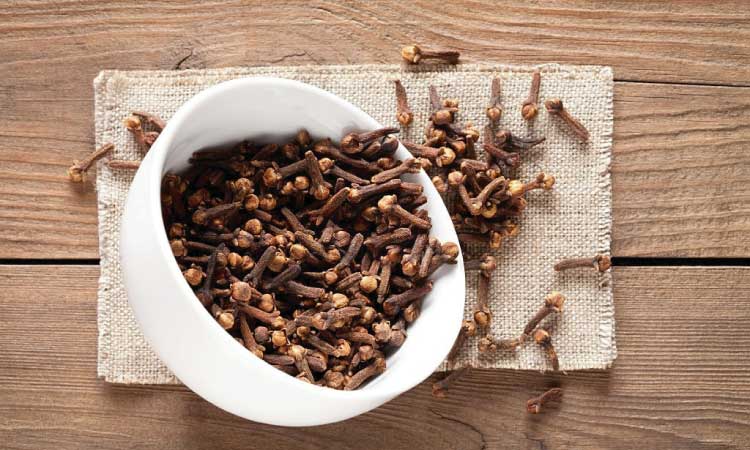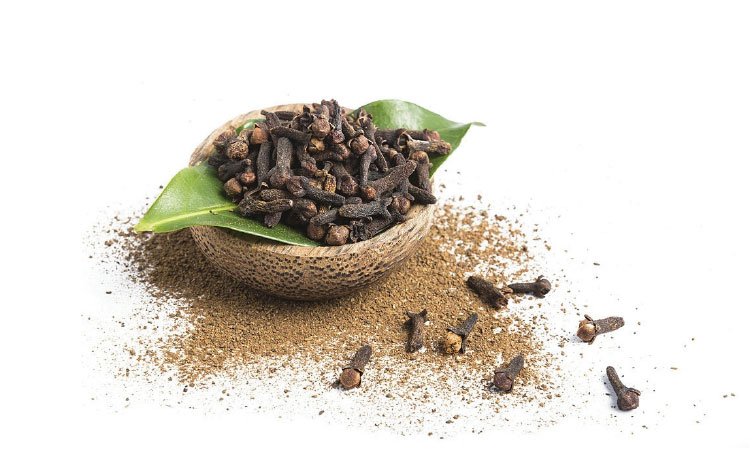Cloves during pregnancy can be a wonderful and greatly beneficial addition to your diet. They are one of those spices that can be incorporated into your diet in a number of different ways, and they also provide some great flavor as well as a plethora of benefits to both your health and to the baby as well.
Is It Safe To Eat Cloves During Pregnancy?
One of the most common questions asked regarding cloves is “are cloves harmful during pregnancy?” While there isn’t anything particularly inherently dangerous about consuming cloves, it is worth noting that they are not without their side effects, particularly when consumed in excess.
In addition to this, some people are also known to be allergic to cloves. Because of this, it is strongly advised that you first consult your dietician before introducing them into your diet, and be cautious when you do, in the unlikely event that you turn out to be allergic to them.
What Are The Benefits Of Eating Cloves During Pregnancy?
Cloves boast a rather strong nutritional profile, being rich in the likes of vitamins, calcium, iron, potassium, manganese, and so on, as well as having a relatively low caloric content. If not a superfood in itself, cloves can easily be added to routine foods to make them pregnancy superfoods.
As such, they can offer a plethora of potential benefits to both your health, as well as the health of your child. Some of the benefits of eating cloves during pregnancy are:
1. Cloves help to improve digestion and bowel movements
As a result of pregnancy, your body tends to have increased demands for nutrition, and you will experience rather drastic fluctuations in your diet. This can have a bad effect on your digestion and bowel movements which, left unchecked, can have rather drastic consequences in the long term.
These include constipation, diarrhea, gas, ulcers, and so on. Cloves, being rich in categoric acid and eugenic acid can greatly help prevent this by helping improve the digestion process. In addition to this, they are also rich in fiber, which greatly helps you streamline your bowel movements.
2. Help keep diabetes in check
Diabetes is a very real, rather common threat for most people. This threat is only all the more consequential if you are pregnant, as it can have rather drastic consequences for your baby as well.
Calculate Due Date With LMP
According to a study, cloves can go a long way in helping prevent diabetes, as they greatly help increase the function of insulin efficiently. They also lower the glucose levels in your blood and help reduce your overall cholesterol.
3. Helps improve bone health
This is yet another consequence of pregnancy that is rather common. Pregnant women can experience a rather dramatic decrease in bone density, and general bone health. Left unchecked, this can lead to a number of problems and can cause a lot of pain in the long run. Cloves are known for their ability to preserve bone mass1.
Cloves contain calcium, minerals, and small amounts of phosphorus. As such, they can quite significantly improve bone density, strength, and general bone health. They can also help with the bone development of the baby, by providing essential nutrients.
Related Reading: Almond Milk During Pregnancy – Benefits, Risks, And Precautions
4. Cloves help to boost immunity

It is not uncommon for pregnancy to take quite a significant toll on a woman’s health, and quite drastically affect their immune system. As a result, this can leave them vulnerable to a number of ailments, both minor and major. In extreme cases, this can lead to complications with the pregnancy and even affect the baby. Cloves are known for their ability to enhance immunity2.
Cloves contain nutrients like iron and vitamin C that can greatly help boost your immunity during pregnancy, thereby mitigating the risk of contracting said ailments. Eugenol, in particular, is especially effective against harmful bacteria, viruses, and fungi. Especially consuming cloves during pregnancy third trimester will hence be particularly helpful.
5. Helps protect against bacteria and infections
Bacteria and related infections are also not that uncommon in pregnant women. While they’re not among the more serious ailments to be conscious of, they too can have unwanted consequences and potentially cause complications to your pregnancy.
As mentioned above, cloves contain Eugenol, which has extremely effective anti-bacterial and anti-fungal properties3. This helps kill a lot of harmful bacteria and prevent a number of related infections such as vaginal infections, athlete’s foot, and so on.
Related Reading: 9 Common Infections During Pregnancy You Should Be Aware Of
6. Helps protect against cancer
The risk of cancer is very real and all too common in people. In pregnant women, it is especially important that you are careful and take preventative measures against it, for both your sake as well as your baby’s. According to a source, cloves are being hailed as the future of cancer treatment because of their capability to inhibit cell proliferation in various cancer cells.
Clove extract is known to be able to halt the growth and stop the activity of cancerous cells in the breast, colon, ovaries, and liver, and as such, cloves can go a long way in helping mitigate the risk of contracting cancer.
7. Helps relieve stress
Stress is a rather critical, yet often overlooked factor that can quite dramatically affect your health, particularly during pregnancy. Something as common and simple as stress can quite greatly affect your overall health as well as your baby’s, and during pregnancy, it can be quite easy to feel stressed and fatigued. Cloves are known for their anti-stress activity4. Anxiety and stress can be effectively reduced when using cloves.
Cloves stimulate the production of stress-relieving hormones thereby uplifting one’s mood. Drinking tea made with honey, cardamom, basil, and clove during pregnancy, the first trimester, and onward can quite greatly help alleviate stress and reduce muscle spasms. In addition to this, applying clove oil and massaging can also help a great deal by reducing fatigue, anxiety, mental exhaustion, and easing tension.
Related Reading: Drinking Red Wine During Pregnancy- Pros And Cons
Risks And Precautions When Eating Cloves During Pregnancy
As mentioned above, consuming cloves is not entirely free of risk. Particularly when consumed in excess, cloves can have a particularly adverse effect on your health and can end up doing more harm than good. Being a common allergen, it is also important that you be cautious of potential allergic reactions as well. Some of the risks of consuming cloves during pregnancy are given below
- If you are allergic, cloves can cause some drastic reactions and can be quite extremely dangerous during pregnancy. Keep in mind that even applying clove oil to your skin can lead to an allergic reaction
- Clove oil can cause a number of problems if ingested excessively. As they stimulate the uterus, they can increase your contractions and even lead to premature birth. In extreme cases, they can even lead to seizures during pregnancy
- Excess consumption of cloves can lead to a great deal of abdominal pain, and in rather extreme cases it can even lead to kidney and liver failure
However, there are a number of steps one can take in order to mitigate the aforementioned risks and gain as many benefits from consuming cloves as one can. A few such precautions you can take are
- First and foremost, be sure to consult your dietician before introducing cloves into your diet, and take their advice on the quantity as well as the method of ingestion
- Make sure that you maintain moderation. Do not consume cloves in excess, in any manner. Your doctor or dietician would be the perfect guide in helping you determine the most appropriate amount for you
- Do not use unnecessary supplements or use cloves and clove oil for minor ailments unless and until advised by a medical professional
Related Reading: 11 Tips For Balancing Work And Motherhood
How To Use Cloves During Pregnancy?

As mentioned earlier, there are a number of different ways to introduce cloves into your pregnancy lifestyle. Being quite greatly beneficial to your health, you can imagine it has a number of uses. It is worth noting that cloves may be consumed in particular ways in order to gain particular benefits from them. A few different ways of using cloves are listed below
- Eating them in their original form – simply directly eating cloves, particularly after meals can greatly aid with the digestive process. In addition to this, it is also considered a great home remedy for bad breath
- Adding them to tea, or simply drinking clove water during pregnancy can go a long way towards aiding the digestive process, as well as acting as an anti-bacterial and helping you prevent or treat several ailments
- You can boil a handful of cloves in water and inhale the steam in order to treat a stuffy nose or help with your breathing
- Cloves can be used to prepare a number of dishes. They will add some much-needed flavor as well as offer a great deal of benefits. Many clove-based recipes can be found online for snacks, cookies, rice, and so on
If you take the necessary precautions, and well-informed advice from your doctor, cloves will surely make a wonderful addition to your pregnancy lifestyle. Being widely available and quite easily accessible, it is a rather convenient and elegant solution to a number of problems that can affect pregnant women. Just be sure that they are used in moderation, and that you take the necessary precautions listed above.
FAQs
Yes. Clove tea is a wonderfully delicious, flavorful, and healthy drink to consume, even in pregnancy. Just be sure to consult your doctor or dietician beforehand and use cloves in appropriate amounts. Also be sure to drink cloves tea in moderation, as an excess amount can have adverse effects on your health.
One more thing to note is that it is strongly advised that you use powdered cloves instead of clove oil when preparing clove tea, as it helps prevent a number of potential problems that may arise as a result of clove oil.
As mentioned above, eating cloves is indeed a wonderful way to help treat bad breath. So much so in fact, that it is used in traditional Chinese medicine as a widely accepted home remedy for just that.
Although there are limited studies on the matter, it is believed that consuming two to three cloves per day is not harmful. Before incorporating it into your routine, consult your doctor.


